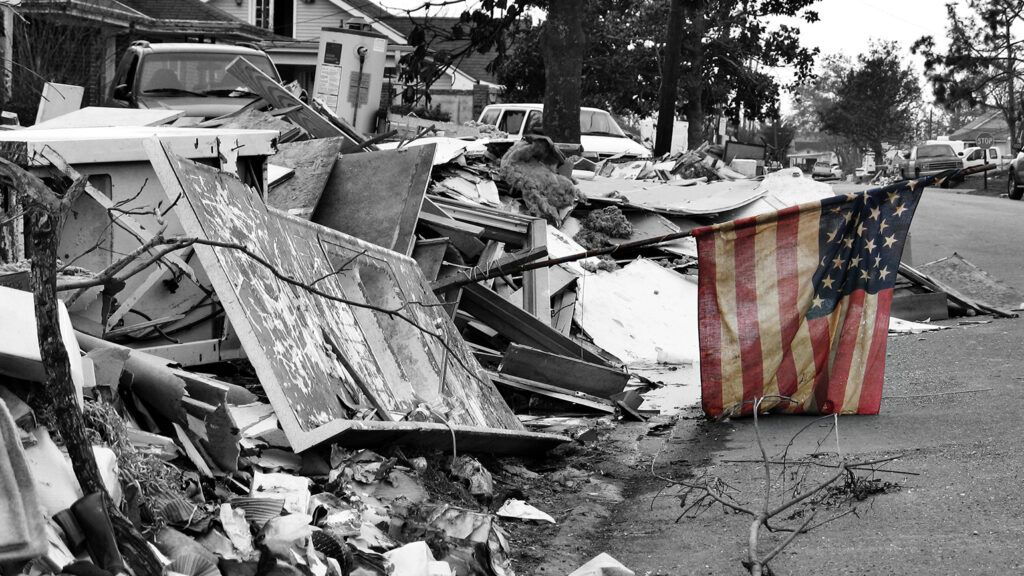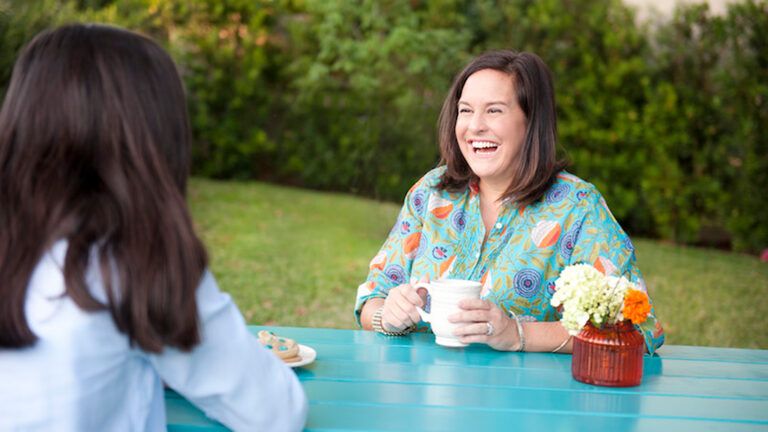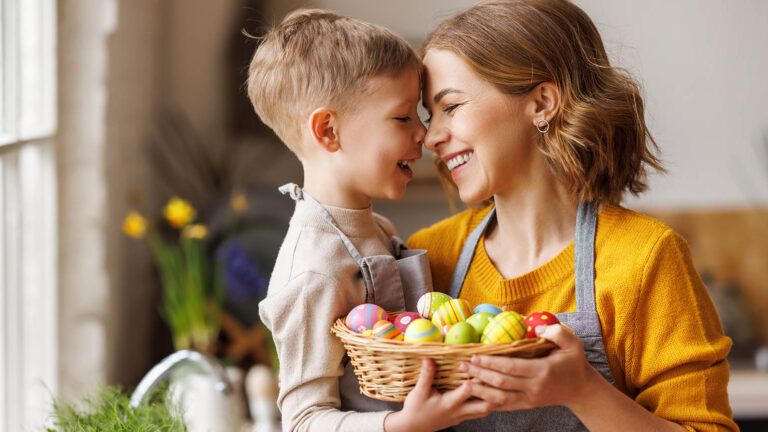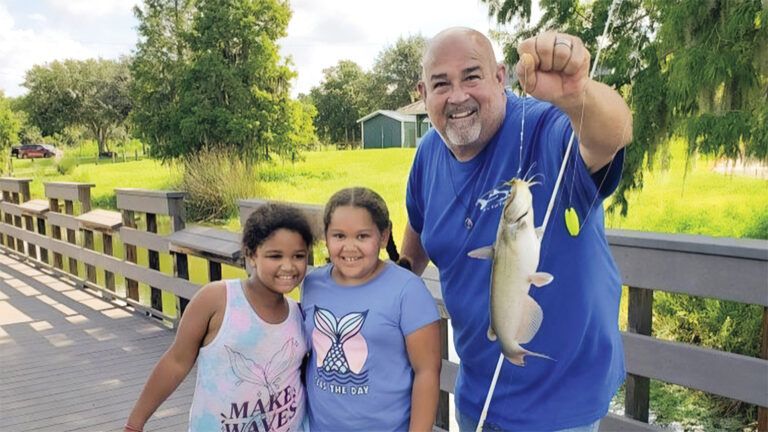What a year this has been! Even as little as six months ago, I couldn’t have imagined what lay ahead. If I’ve learned just one thing from this past year—and I’ve learned a lot—it’s that life can change completely in the blink of an eye.
Back in August, the last person I thought I’d be on the phone with was piano player Harry Connick Jr., a beloved son of the Crescent City. All I cared about and was praying for then was the safety of my own family in and around the Big Easy. You might remember my story in the November 2005 issue of Guideposts. Since we prepare the magazine in advance, I told my story in the immediate aftershock of Katrina. When we went to press there was so much we still didn’t know.
Now some time has passed, and this Christmas, believe it or not, we’re going to count our blessings. Mama called me the other day. “Colleen, I don’t care what’s happened. This will be the best Christmas ever.”
I had to swallow a lump in my throat before I replied. “I know what you mean, Mama.” She has certainly been on an emotional roller coaster these past months. We had good news and bad news as the waters receded from Katrina then rose and receded again in the wake of Rita.
Best Christmas ever? I didn’t know about that. In the excitement of the holidays, and with the way our culture moves so fast these days, I wondered if the poor people of the Gulf Coast would be forgotten. I could no longer turn on CNN at any time and see pictures of New Orleans with up-to-the-minute reports of what was happening.
My new worries extended far beyond my own family’s troubles to the entire Gulf Coast region and what we could honestly expect over time. How would we keep the country’s attention focused on our crisis when we knew there were other challenges at hand? Had the media moved on before we’d had a chance to address this tragedy with all our collective might?
It didn’t seem right to be buying Christmas presents when there was so much work to be done, rebuilding neighborhoods and schools, churches and levees. Lives, families and entire communities were still torn asunder.
I knew that Harry Connick Jr. was involved with Habitat for Humanity and dedicated to the long-term effort to rebuild the Gulf Coast. Guideposts arranged for me to talk to him.
“I’m from Metairie,” I said by way of introduction. “We used to see you at church with your daddy sometimes at St. Louis King of France. My brothers went to Jesuit”—Harry’s high school too—”and my parents are friendly with your aunt Jessie and uncle John.”
“Cool,” Harry said. “I used to go with a girl from Metairie.” Famous or not, every New Orleanian was connected in one way or another. If you reached back far enough and told enough stories, it would come out that somebody knew somebody that you knew. Probably because people who grew up in New Orleans tended to stay there. Harry and I are unusual in that regard. We’d moved to New York.
“I was up north when I got a call from my dad saying Katrina could be a bad one,” Harry said. “He and my stepmom left for higher ground. Hurricane passed. We thought we could breathe easy. A day later I couldn’t believe the images I was seeing on TV.”
Harry did exactly what I wanted to do but couldn’t: He went back. Right into the chaos. “These people,” he said, “our people, needed help and nobody was coming. Nobody! I took what I had and hoped it would bring attention.”
It had worked. Harry took two boat trips into the city, both broadcast on the Today show. He passed people wading chest-deep in water, plastic bags of possessions held high above their heads, their whole lives in bags. Some asked for food or water or where to go for rest.
“We ferried people from their porches to our SUV, and on to shelter. Some insisted on waiting it out. They didn’t want to leave their homes, much less their city. Some of these people had never been out of their neighborhood. The water would go down; they’d just wait.”
Some think we move slow down in New Orleans. I say we’re patient. You learn to wait things out. Like floods. “Yeah,” said Harry, “the water recedes; maybe you have to get new carpets. So what. Hurricanes were just something we got. Remember when we were kids? You grow up with the excitement of them. ‘Hey, hurricane’s coming. School’s closed!’ You know something powerful is on the way, but you know it’ll pass, and maybe you’ll get to splash around in the street, cool off some.” Not that you needed a hurricane for street flooding. A good summer rain would put water in New Orleans.
Harry took a boat to the neighborhoods uptown. Everything looked pretty dry around his dad’s house and Harry reported to him on his cell phone. “You could actually walk around much of the French Quarter downtown,” Harry said. It sits on pretty high ground for New Orleans. But the highest ground in New Orleans, at least in a spiritual sense, is St. Louis Cathedral in Jackson Square.
“We passed by Jackson Square and the cathedral. That’s where I got married.” The proud symbol of our city, one of the oldest cathedrals in the United States, was miraculously unscathed. Harry walked around back to the courtyard, anxious to check out the marble statue of Jesus, who stood guard among the tall oak and magnolia trees, his arms outstretched over the city.
“The courtyard looked like a war zone,” Harry said, shocked. “Two huge oaks toppled over. Torn from the ground. Root systems taller than me.” The trees lay side by side in a tangle of dirt and broken branches. Chaos. Except for what stood in between: The statue of Jesus, untouched, save for a couple fingers. At the statue’s base is an inscription: J’ai confiance en vous. “I have confidence in you.”
“I have faith in my brothers and sisters of New Orleans, Colleen. You can flood the streets, you can burn the buildings, you can leave the city unprotected. But you can’t destroy the spirit of the people who live there. This is why we go to church on Sundays. This is what we’ve been getting ourselves ready for.”
I heard what Harry was saying. This was why we practiced our faith, in church on Sundays and all the days in between. Because there would come a time when we’d have to buckle down and use the faith we’d built up. Put it to the test. Draw on it as a resource of strength and reassurance in our desperate time of need.
There are a million things you can do this holiday season and beyond. A ton of good organizations need your help and your dollars. Visit How You Can Help Katrina Victims to find out more. “Me,” Harry said, “I’m working with Habitat for Humanity‘s hurricane recovery effort, Operation Home Delivery, on the Gulf Coast. We need houses to come home to. We need to rebuild our schools, our churches and synagogues, our communities. This is going to take a while and we will have to stay committed for the long haul. It’s not a short-term deal.”
Like I said, we are patient down in New Orleans. And we will have to be. We will have to ask all who help us to be, to stand by us and support us long after the floodwaters recede. With all of us working together, in faith, we’ll make a new beginning for the Crescent City and the entire Gulf Coast. What better time to celebrate a new beginning than Christmas, when a son born to the world meant rebirth for us all? Yep, Harry’s right. This is why we go to church on Sundays.






